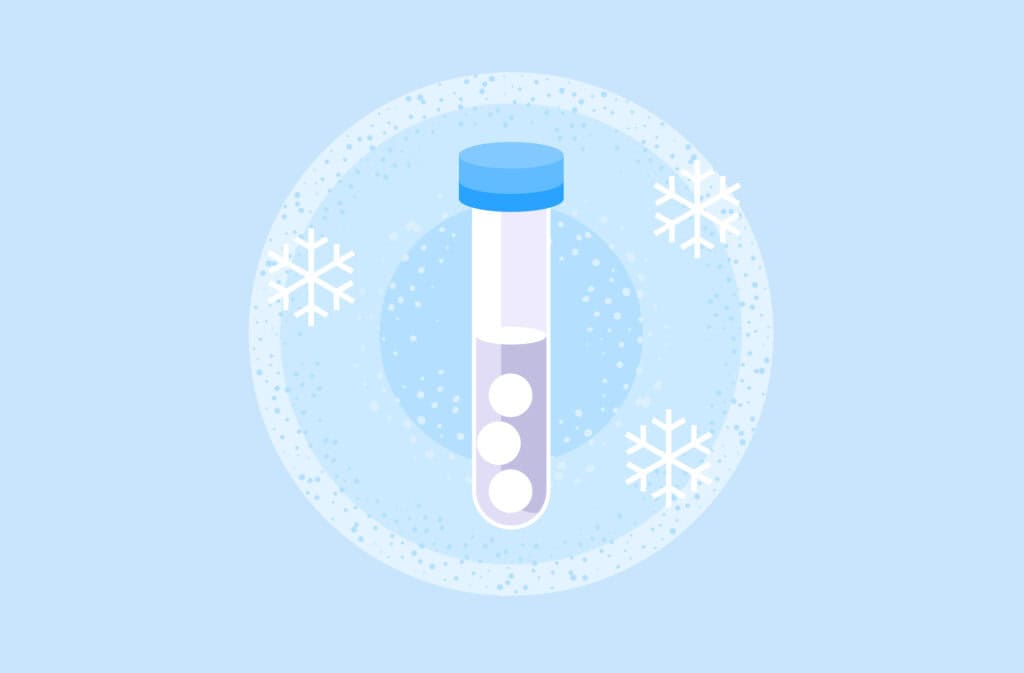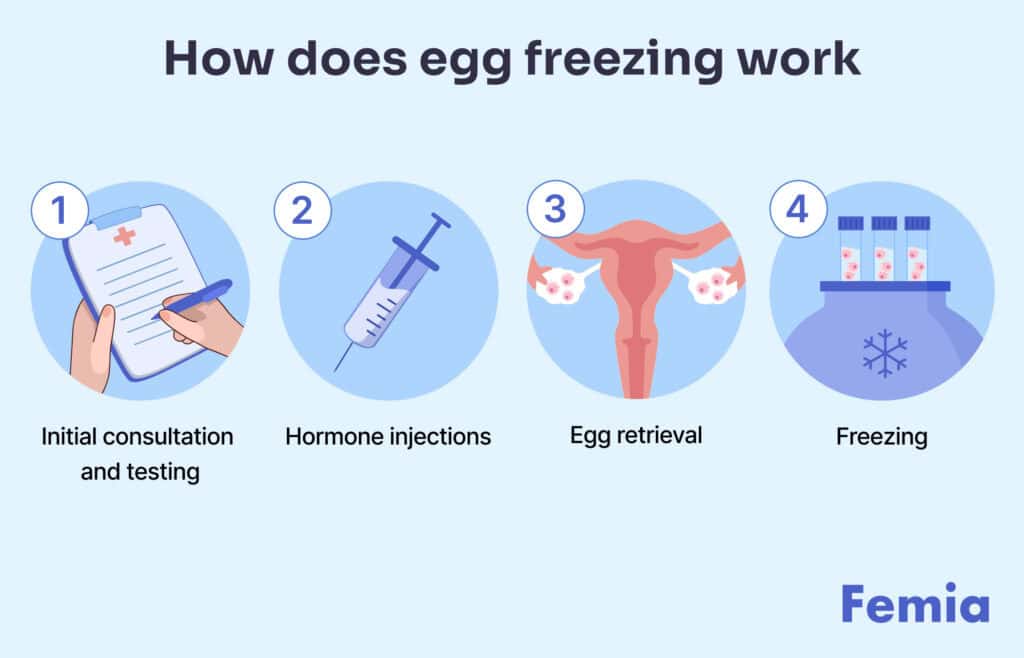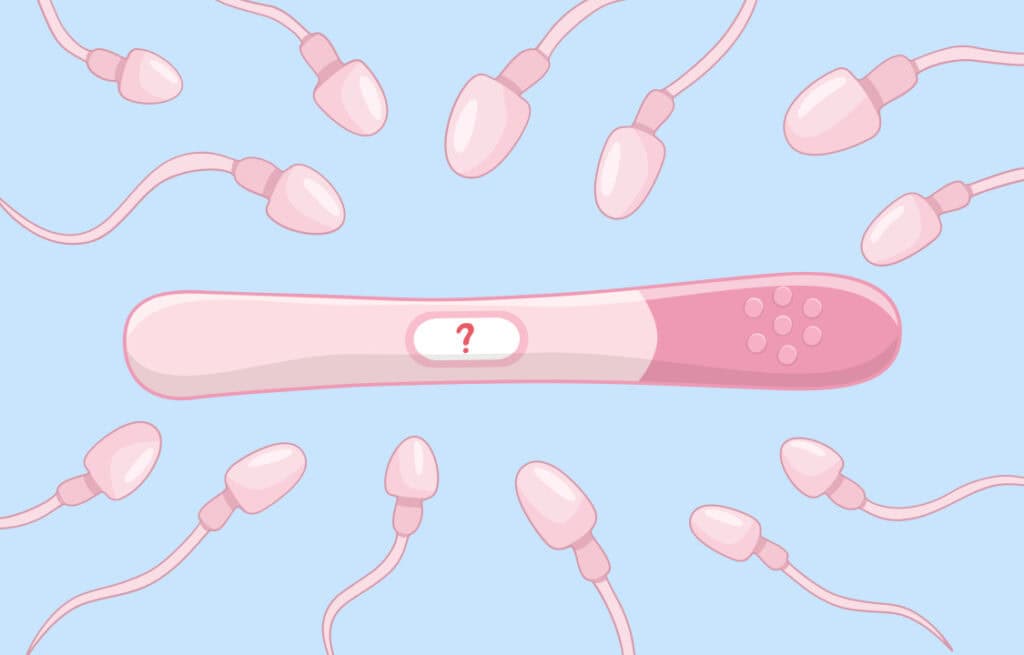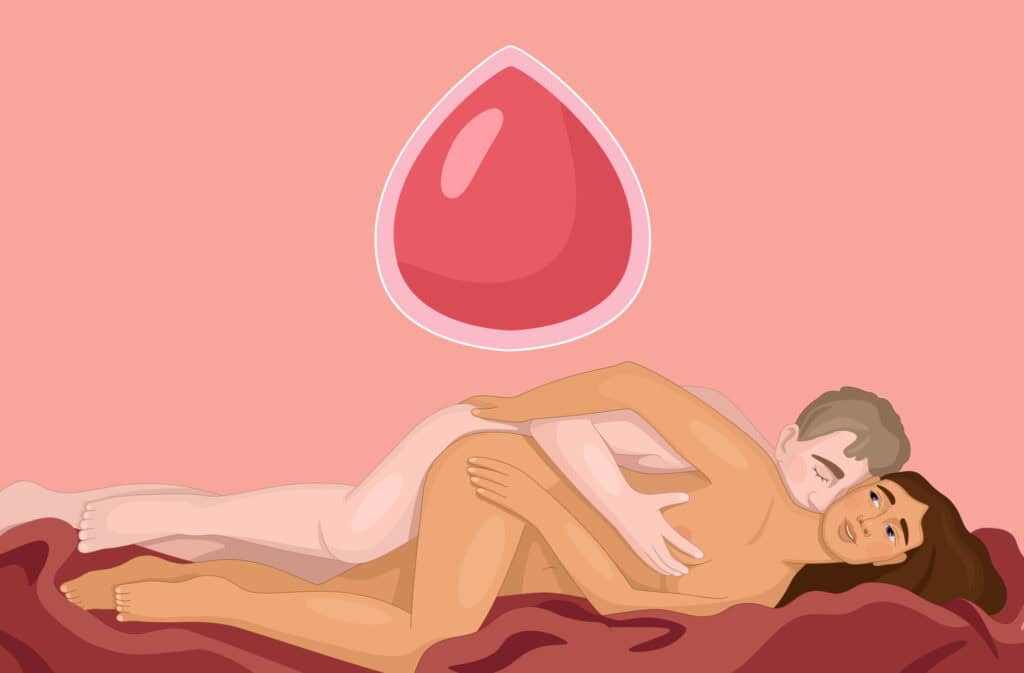Femia > Health Library > Getting Pregnant > Challenges > Egg freezing: everything you need to know about preserving fertility
Egg freezing: everything you need to know about preserving fertility

- Updated Feb 10, 2025
- Published
CRAFTED BY HUMAN
Crafted by human At Femia, we provide accurate and up-to-date information at every stage of your journey, from trying to conceive, pregnancy and postnatal support. All content is created by a real person based on in-depth research and own professional experience. Femia ensures that you will receive expert advice, strict accuracy and a personalized approach from our authors/medical experts. Learn more about our editorial policy.
FACT CHECKED
Fact checked At Femia Health, we maintain the highest standards of editorial excellence in delivering content focused on helping you conceive, guiding you through pregnancy, and supporting you postpartum. Explore our content review principles to learn how we ensure the accuracy and quality of our health and lifestyle tips for every stage of your journey.
Egg freezing is a method to preserve fertility by extracting, freezing, and storing a woman’s eggs for future pregnancies. It’s often chosen by those who want to delay pregnancy due to personal, career, or health reasons, especially as age or medical conditions may impact fertility.
Both the ASRM and RCOG recommend considering egg freezing at a younger age, ideally between 27 and 35, as eggs are of the highest quality during this range, offering the best chances for successful future use.
Key factors to consider include the age range, process steps, and potential success rates, which decline with age.
Egg freezing is growing in popularity as an option for preserving fertility. While this option is often offered for those struggling with diseases that may affect fertility, it can also be a great option for healthy women who just want to focus on other important things before getting pregnant.
With age, the quantity and quality of a woman’s eggs decrease, making conception and maintaining a healthy pregnancy more challenging. The maximum number of oocytes, around 6–7 million, is reached by 20 weeks of gestation in a female fetus. By birth, this declines to about 1–2 million, and further to 300,000–500,000 at puberty. By age 37, approximately 25,000 eggs remain, and by 51—the average age of menopause in the United States—around 1,000 eggs are left. Let’s take a closer look at the egg-freezing option, explaining everything in detail and answering the most popular questions.
Femia offers a plan to help you remove your blocks to get pregnant
What is egg freezing?
Egg freezing, medically known as oocyte cryopreservation, is a method of preserving fertility where a woman’s eggs (oocytes) are extracted, frozen, and stored. Those frozen eggs can later be thawed and used during in vitro fertilization (IVF) in order for a woman to try and become pregnant.
Egg freezing allows women to postpone pregnancy without sacrificing egg quality or worrying about aging. Although the process doesn’t guarantee a 100% conception rate and live birth, it does offer good chances for a later pregnancy if there are no assisted health complications.
👉Find out more: How many eggs does a woman have? Understanding egg count and fertility by age
Egg freezing as part of fertility preservation
Although most believe that egg freezing is most commonly used as a way to postpone pregnancy, there are many reasons why someone would consider undergoing this procedure. Here is a brief overview of these cases:
- Preserving eggs now for future pregnancies: As mentioned, women’s egg quality and quantity decrease with age, but not every woman in her early 20s (when there is the highest chance of pregnancy) is financially and mentally be ready to become a mother. So, egg freezing gives her and her partner higher flexibility in pregnancy decisions and reduces The stress associated with later pregnancies.
- Planning to get pregnant through in vitro fertilization (IVF): This is a medical procedure where an egg is extracted from the ovary (just like egg freezing) and is fertilized with sperm in a laboratory. IVF is one of the most common treatments for conception challenges. Egg preservation may also be a choice for people using IVF.
- Cancer or another illness treatment involving chemotherapy: Several treatments involving chemotherapy, radiation, and ovarian surgery all usually negatively affect the ability to become pregnant. That’s why egg freezing is often a choice for such patients to finish treatment without worrying about not having biological children in the future.
- A family history of early menopause: certain genetic conditions, including Fragile X syndrome and Turner syndrome, can lead to primary ovarian insufficiency (POI). This condition causes the ovaries to produce fewer follicles, resulting in reduced estrogen levels and an early depletion of egg supply, often leading to early menopause. As these women are at higher risk of premature ovarian aging, egg freezing can be a valuable option to preserve fertility before the ovarian reserve declines further.
How does egg freezing work?

Let’s explore a detailed, step-by-step outline of the process of freezing eggs:
Step 1. Initial consultation and testing for egg freezing
The egg preservation process always starts with an initial consultation with a fertility specialist. Doctors will likely require some tests to determine ovarian reserve and reproductive health. For example, these could be blood tests and ultrasound exams, which help to identify hormone levels and follicle count.
Step 2. Hormone injections (ovarian stimulation)
Hormone injections may be administered for about 1–14 days to increase the number of mature eggs available for egg preservation. For example, these usually include follicle-stimulating hormone (FSH) and luteinizing hormone (LH).
Step 3. Egg retrieval
Once the eggs reach the ideal size, a final “trigger shot” injection is given to complete their maturation. About 36 hours later, your doctor can perform egg retrieval using a transvaginal, ultrasound-guided needle. This is a minimally invasive procedure, done under sedation, and takes about 15–20 minutes. Then, your fertility specialist will collect the eggs and take them to the lab for assessment and further egg preservation.
Step 4. Egg freezing
Once retrieved, mature eggs will be evaluated for quality and then frozen using a method called vitrification. This advanced egg freezing technique prevents ice crystals from forming, preserving the eggs for future use. Only mature eggs will be used for freezing, as they are more likely to survive for future use.
Vitrification is currently the leading egg-freezing technique due to its high success rates. This method freezes eggs by converting them into a glass-like state almost instantly. Doctors use a high concentration of cryoprotectants, significantly reducing the risk of ice crystal formation, which can damage cells.
Duration of the egg freezing process
Depending on one’s response to hormone stimulation, the entire egg freezing process typically takes around 2–3 weeks. Some patients may experience mild side effects from the hormone injections, including bloating, mild discomfort, and mood swings. Recovery from the egg retrieval procedure is usually quick, with most people returning to normal activities the following day.
How many eggs should be frozen?
The number of retrieved eggs will depend on the reason for freezing, age, and individual fertility factors. For example, freezing 10–15 mature eggs is usually enough for women under 35 to have a high chance of successful pregnancy.
Those over 35 may need to freeze 15–20 eggs due to declining egg quality. As you may have deduced, freezing more eggs will give you the best chances of successful fertilization and implantation later on.
When should you freeze your eggs?
Freezing eggs is a proactive choice for preserving fertility, so determining the optimal timing is important and will be based on the reason for freezing eggs. As we mentioned, fertility declines in late 20s, with a more significant decrease starting in the mid-30s.
This decline reduces the eggs’ quantity and quality.This decline means eggs are more likely to be chromosomally normal at a younger age, increasing the chances of successful conception and a healthy pregnancy. Both the ASRM and RCOG recommend considering egg freezing at a younger age—ideally between 27 and 35—when eggs are of the highest quality, providing the best chance for future use. While age is a crucial factor, other considerations also play a role, which we will discuss later.
👉Find out more: Can HPV cause infertility: Understanding the impact on fertility and pregnancy
Pros and cons of freezing eggs at different ages
Early 20s
Those eggs tend to be of the highest quality, resulting in a better chance of successful pregnancy when used later. However, many women are not sure about their future fertility needs, so investing in egg freezing may not be their priority at this age.
Late 20s to Mid-30s
This age range is often considered optimal for egg freezing. Egg quality remains relatively high, and by this age, women may have a clearer understanding of their future family plans. However, a slightly later start means egg quality will not be as high as in early 20s, so, in some cases, there might be a lower chance of successful or faster pregnancy.
Freezing eggs in the late 30s to early 40s
For women approaching their 40s, freezing eggs may still provide an opportunity for biological children in the future. Many women in their late 30s to early 40s are in stable relationships or have the financial means to pursue this option if needed.
However, both the quantity and quality of eggs by this age have typically declined, affecting the success rate of freezing and future pregnancies. In addition, women may need multiple retrieval cycles to gather a sufficient number of viable eggs, which increases costs and time.
Freezing eggs at 40s
Although it still may be possible, the success rate tends to be much lower because of significantly decreased egg quality and viability. In that case, a woman in her 40s will likely need several retrieval procedures and will have only a few mature healthy eggs for later pregnancy.
Factors that affect egg freezing success
Let’s explore some of the key factors that can affect egg-freezing success and later conception:
1. Age at the time of egg freezing and number of eggs frozen
As with most fertility-related issues, age is at the top of the list. In short, the younger a woman is when she freezes her eggs, the higher the chance for successful pregnancy and live birth will be.
2. Previous treatments and health conditions
Some treatments and health conditions, including PCOS, will affect the eggs’ quantity and quality as well. That’s why it may be harder for some to grow enough mature eggs with the first retrieval, or there might be fewer healthy eggs for retrieval in the first place.
3. Freezing methods and lab quality
The “slow egg freezing” method has long been a standard. However, with the time gap between when women freeze their eggs and when they use them (several years or even a decade later), slow-frozen eggs have an average thawing survival rate of 61%. At this time, the “flash freezing”/vitrification technique has an average survival rate of 90% to 95%.
4. Number of embryos transferred
After freezing, thawing, fertilization, and culturing, the final hurdle to pregnancy is the embryo transfer and hopeful implantation. The doctor should have several embryos suitable for transfer by that point. Doctors may transfer more than one embryo to boost the final live birth rate.
However, if most embryos are high quality, fertility experts will transfer one embryo, or two at the most, because of the risk of multiple pregnancies.
Are there risks involved in the egg-freezing process?
Like any medical procedure, egg retrieval may involve certain risks, including:
- Ovarian Hyperstimulation Syndrome (OHSS). Although rare, this condition develops when the hormone stimulants used in the leadup to freezing eggs have worked too well, and the body over-responds by developing fluid retention and abdominal swelling.
- Bleeding and infection may also be caused by the egg retrieval process.
- Complications after anesthesia.
However, choosing a doctor and clinic you trust and ensuring you have no complications before the procedure will help eliminate most of the risks.
Femia offers a plan to help you remove your blocks to get pregnant
Questions from the Femia community
If you freeze your eggs, can you still get pregnant?
Yes, freezing eggs does not prevent natural conception.
What happens if frozen eggs aren't used?
Since fertility specialists usually harvest more than two eggs, there may be some remaining after successful conception. If you don’t plan on more future pregnancies, these frozen eggs can be discarded, donated to research, or donated to someone else with consent.
How many eggs does a woman have?
In puberty, a woman has between 300,000–400,000 eggs. In the early 20s, she approximately has 150,000 to 300,000 eggs, and 100,000 to 150,000 eggs when she reaches her early 30s.
What is the difference between egg freezing and embryo freezing?
Egg freezing preserves unfertilized eggs. In contrast, embryo freezing requires fertilization with sperm.
Does egg freezing guarantee a successful pregnancy?
No—while egg freezing preserves fertility potential, it does not ensure a future pregnancy. In general, there is roughly a 40% chance of achieving a successful pregnancy with frozen eggs.
How do you freeze eggs for fertility?
Once harvested, mature eggs go though vitrification—a process of quickly putting eggs into a deep freeze. Then, they will be stored in liquid nitrogen tanks in an embryology lab.
The bottom line
Egg freezing offers a pathway to preserve fertility by halting age-related declines in egg quality. The process, which involves hormone stimulation, egg retrieval, and vitrification, can benefit women considering later pregnancies or those undergoing treatments that may affect fertility. Timing, age, and health are critical to success rates, with younger women generally having better outcomes. While egg freezing doesn’t guarantee pregnancy, it provides an option for future family planning, though it requires financial, emotional, and logistical commitment.
References
- “Egg Freezing – Information for Patients.” Cambridge University Hospitals, www.cuh.nhs.uk/patient-information/egg-freezing-information-for-patients/.
- Hospital, The Royal Women’s. “How Cancer Treatments Affect Fertility.” The Royal Women’s Hospital, www.thewomens.org.au/health-information/fertility-information/cancer-treatment-fertility/how-cancer-treatments-affect-fertility.
- Martin, J. Ryan, and Aydin Arici. “Fragile X and Reproduction.” Current Opinion in Obstetrics & Gynecology, vol. 20, no. 3, 1 June 2008, pp. 216–220, pubmed.ncbi.nlm.nih.gov/18460934/, https://doi.org/10.1097/GCO.0b013e3282fe7254.
- Oktay, Kutluk, et al. “Fertility Preservation in Women with Turner Syndrome: A Comprehensive Review and Practical Guidelines.” Journal of Pediatric and Adolescent Gynecology, vol. 29, no. 5, Oct. 2016, pp. 409–416, www.ncbi.nlm.nih.gov/pmc/articles/PMC5015771/, https://doi.org/10.1016/j.jpag.2015.10.011. Accessed 18 Nov. 2019.
- Orlowski, Michelle, and Manbeer S Sarao. “Physiology, Follicle Stimulating Hormone.” Nih.gov, StatPearls Publishing, 16 Dec. 2023, www.ncbi.nlm.nih.gov/books/NBK535442/.
- Nedresky, Daniel, and Gurdeep Singh. “Physiology, Luteinizing Hormone.” PubMed, StatPearls Publishing, 2020, www.ncbi.nlm.nih.gov/books/NBK539692/.
- “A Look at Vitrification – a Type of Egg, Sperm and Embryo Freezing.” Texas Fertility Center, 15 Dec. 2021, txfertility.com/in-vitro-fertilization-ivf/vitrification/. Accessed 6 Nov. 2024.
- FACOG, Alexander Kucherov, MD. “How Does Egg Freezing Work? A Fertility Doctor Explains the Process.” Www.illumefertility.com, www.illumefertility.com/fertility-blog/how-does-egg-freezing-work.
- Mayo Clinic. “Polycystic Ovary Syndrome (PCOS) – Symptoms and Causes.” Mayo Clinic, 2022, www.mayoclinic.org/diseases-conditions/pcos/symptoms-causes/syc-20353439.
- “Egg Freezing Success Rates.” Southern California Reproductive Center, 7 Dec. 2023, www.scrcivf.com/egg-freezing-success-rates/. Accessed 6 Nov. 2024.

How likely are you to get pregnant from precum? Read this in-depth guide to understand the chances of getting pregnant from precum and find actionable tips to mitigate the risks.

How big your baby is? Explore our guide to track your baby’s size compared to fruit week by week and learn about key developmental milestones during pregnancy.

What are the risks and benefits of period sex? Click to read the complete guide with all the information you need to know and tips for a comfortable experience!

